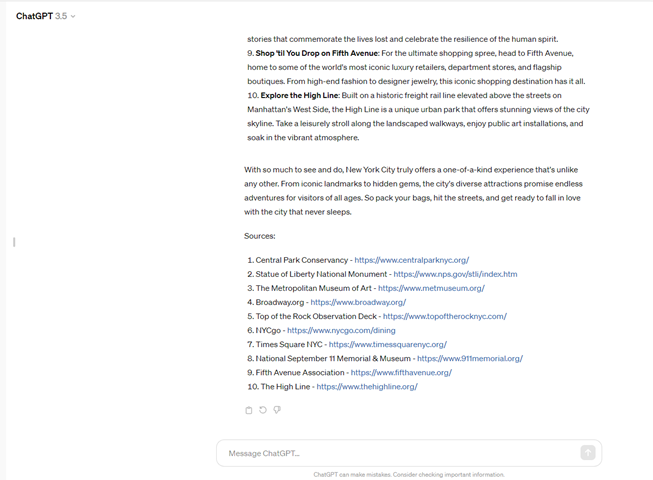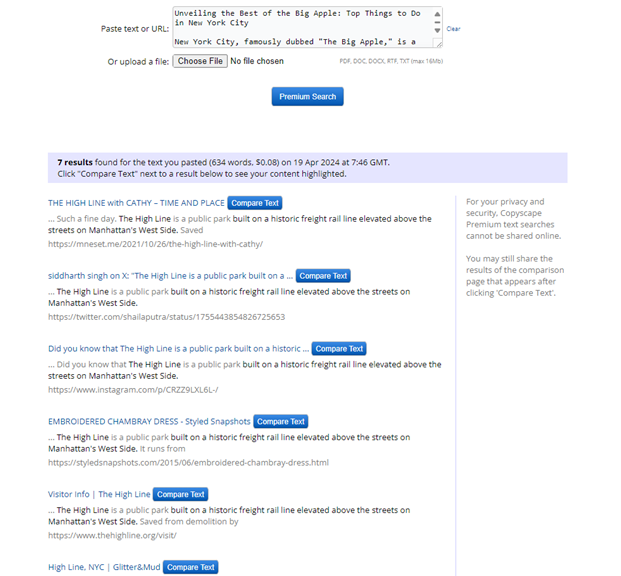

Last updated on

AI holds immense potential for enhancing the efficiency and productivity of brands and marketers, expediting tasks significantly. However, it’s crucial to acknowledge that AI isn’t flawless and comes with its own set of limitations.
As AI becomes increasingly integrated into SEO workflows, processes, and tools, SEO professionals are compelled to adopt an ethical stance towards artificial intelligence.
So, what does an ethical approach to AI entail?
An ethical approach requires the transparent, fair, and responsible utilization of AI technologies, coupled with a steadfast commitment to safeguarding user privacy and upholding the accuracy and integrity of information.
It’s widely recognized that AI, while powerful, can yield imperfect results, including inaccuracies, biases, and superficial content, which can pose challenges for agencies and marketers reliant on AI-generated content.
The March core update served as a stark reminder, as sites employing unedited, unoriginal, or unhelpful AI-generated content experienced significant drops in organic traffic.
To navigate these challenges and uphold ethical standards, here are some strategies for leveraging AI responsibly:
Avoid relying on generative AI for content creation intended for publication. If you incorporate generative AI into any aspect of your workflow, it’s imperative to maintain full transparency with the brands you collaborate with, ensuring they are informed about the extent and manner in which AI is integrated into your SEO practices.
When incorporating AI into content creation, prioritize a human-led approach for writing long-form content. Humans should retain primary responsibility for content creation, while AI can assist with tasks such as brainstorming, organization, rewording, transcription, and content refinement. However, it’s crucial to verify the originality of outputs using tools like Copyscape or similar platforms.
Furthermore, ensure that the information provided is trustworthy and accurate. With the inclusion of the HCU (Human Content Understanding) in the March core update, there’s heightened emphasis on prioritizing people-centric content over material that fails to meet user intent or lacks usefulness and satisfaction.
Given Google’s emphasis on prioritizing a positive user experience and content that serves people well, it’s prudent to avoid leaning too heavily on AI-generated content due to its shortcomings in training data and originality. While AI can excel at tasks like assembling notes from individuals with firsthand knowledge and crafting them into a coherent article, it’s not yet reliable for generating original lists and factual content, even with fact-checking measures in place.
Adhering to search engine guidelines and ethical standards is crucial in our approach.
We must refrain from employing AI for tactics such as keyword stuffing, cloaking, or crafting doorway pages. Rather, its application should be geared towards facilitating the development of top-notch, beneficial content.
For further insight, I recommend exploring the Google AI Principles – they provide valuable guidance in this regard.
Integrating AI ethically into SEO practices requires us to consider its wider societal implications. This involves championing trustworthy, valuable content that enhances users’ understanding and overall well-being.
When developing your own AI-driven tools and platforms, it’s imperative to establish robust security protocols and practices to mitigate potential harm.
Prior to launching any technology into production, thorough assessments should be conducted to ensure its safety and security. Continuous monitoring post-release is essential to address any emerging risks.
It’s worth noting that certain AI applications, such as generative AI, may necessitate legal consultation, especially when handling user or customer data. Simply updating a privacy policy might not suffice.
Exercise caution when incorporating proprietary or sensitive information into generative AI systems like ChatGPT. Given that most large language models (LLMs) retain user inputs, there’s a risk of inadvertently sharing confidential data or generating inappropriate responses.
Intellectual property (IP) presents a significant challenge in the realm of AI. When content is generated using ChatGPT, the question of ownership arises.
It’s crucial to ensure that AI-generated recommendations are original and not plagiarized. However, this can be problematic since some AI platforms do not disclose the sources of information unless explicitly instructed to do so.
ChatGPT can provide information on the sources of content if specified in the prompt. For instance, if you request ChatGPT to compose a 750-word blog post on the top things to do in New York and include the sources, it can fulfill that requirement.

When utilizing information from ChatGPT, it’s crucial to acknowledge the source and verify that the content isn’t plagiarized. Additionally, establishing clear guidelines for AI usage in content creation can mitigate legal issues and ensure fairness and integrity.
Upon reviewing the content I generated in ChatGPT, Copyscape flagged it for similarities with existing text.

Copyscape screenshot, dated April 2024
Please note that while requesting LLMs to cite sources is a step towards responsible sourcing, it doesn’t guarantee accurate citation or original content. The safest approach to prevent inadvertent plagiarism is for humans to conduct research and craft content themselves.
With the rapid proliferation of AI-driven tools in the market and their integration into various platforms for daily SEO tasks, prioritizing adherence to ethical AI principles becomes paramount. This ensures that AI’s utilization in SEO fosters a search ecosystem that is fair, inclusive, and centered on user satisfaction.
Google’s longstanding emphasis on quality and genuine content that adds value to users underscores the importance of steering clear of content that is entirely artificial, lacks substance, engenders mistrust, is shallow, duplicates existing material, or lacks originality.
Amid today’s cutthroat and ever-evolving Search Engine Results Pages (SERPs), the focus on enhancing Expertise, Authoritativeness, and Trustworthiness (E-A-T) stands as a crucial endeavor. E-A-T serves as a quality indicator, signaling to Google and users alike that you possess the requisite expertise and authority within your niche.
It’s highly advisable to enlist thought leaders and domain experts to craft your content, showcasing their proficiency and authority on your platform. Furthermore, prioritizing user experience by ensuring swift page loading times, intuitive navigation, and seamless access to desired information on your website is imperative.
Original news from SearchEngineJournal